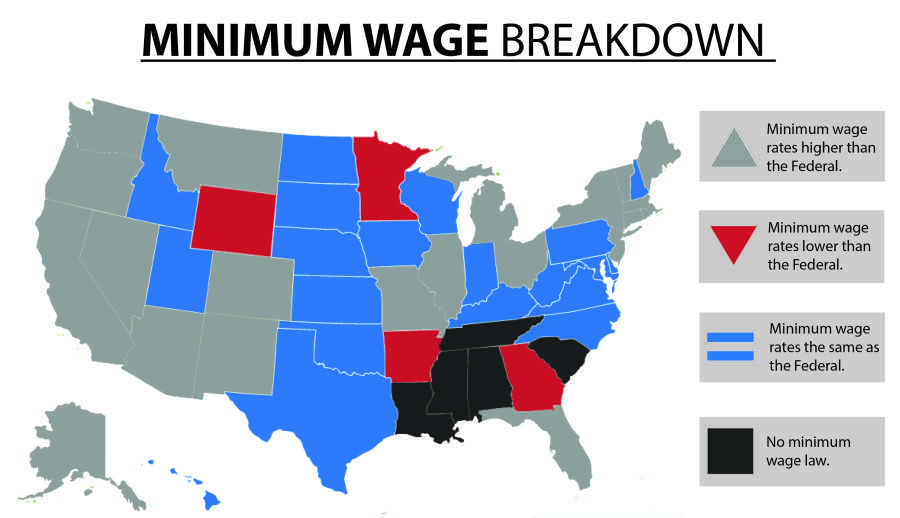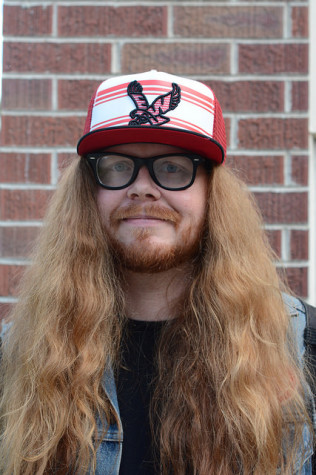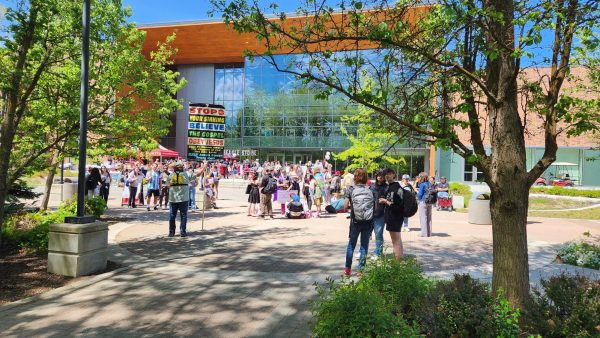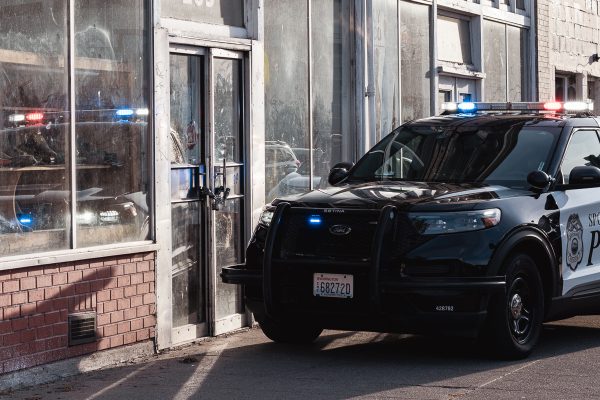Minimum wage increase produces a minimal affect on student workers
February 26, 2014
Set back from the sunshine that floods the street-front windows of his business, Douglas Labar moves quickly alongside his employees.
Labar owns The Mason Jar, a bakery and bistro in Cheney. It is one of many hangouts for Eastern students to socialize, relax, and talk.
The subject today is the minimum wage. Although Washington state has the highest minimum wage in the country at $9.32 an hour, most states are hovering at the Federal minimum wage of $7.25. A new proposal in Congress seeks to raise the Federal minimum wage to $10.10 an hour.
“A lot of my employees are in college,” Labar said. “Most of them make minimum wage, plus tips.
Washington’s minimum wage has been steadily rising in recent years, but Congress hasn’t made a move to increase the Federal minimum wage for seven years.”
The Harkin-Miller bill, also known as the Fair Minimum Wage Act, would raise the federal minimum wage to $10.10 an hour and is being openly supported by President Obama. The bill is sponsored in the Senate by Tom Harkin of Iowa and in the House by George Miller of California, both Democrats. The bill has received no support from Republicans in congress.
“The idea of minimum wage is to provide a cushion,” said Dr. David Bunting, economics professor and department chair at EWU. “It’s a level for people who are disadvantaged in the labor force.
According to Bunting, there are some standard arguments for raising the minimum wage.
“So, there is kind of a social view, and an economics view,” Bunting said.
The social view is an exploitation theory. Bunting said in this view, when people are desperate, they will work for any price. Employers use their market power to then drive wages down. A minimum wage protects young or inexperienced workers from being taken advantage of.
On the economic side, there is an argument that this society should guarantee that every person who is gainfully employed should earn a sufficient amount to maintain an adequate standard of living.
There are also several arguments against a minimum wage.
We live in a market system, and the market should determine the prices. Opponents of raising the minimum wage say that if people are willing to work for less than minimum wage, then they should be allowed to do that.
Another argument is simply that if the minimum wage goes up, employers will have to pay it. This could potentially harm workers, because less of them will be hired.
Labar said he has already had to look into staffing issues due to the rising minimum wage in Washington and has already had to staff minimally because of labor costs.
Josh and Tegan Baldwin, owners of Zentropa Pizzeria and Pub in Cheney, say they did not think a higher minimum wage would help.
“When it goes up, everything goes up,” Josh Baldwin said. “It all balances out.”
The Baldwins said most of their employees make minimum wage plus tips, except cooks, who make $1 to $2 more an hour.
But how much will a minimum wage increase help or hurt EWU students? Not much, according to Bunting.
“I wouldn’t really worry about it in the long run,” Bunting said. Compared to the total operation for the university, the money set aside for student employment is just a fraction.
Sheryl O’Keefe, who works in the student employment office at Eastern, said she received a memo from the College and University Professional Association for Human Resources about a minimum wage increase. The memo stated that an Executive Order was released by President Obama will raise the minimum wage for federal contract workers to $10.10 beginning Jan. 1, 2015, but O’Keefe said she has not heard anything new.
Bunting said that a wage increase will not affect students too much. He said the most important part of college is the education itself and that the economic benefits are virtually un-debatable.
“Part of student employment is to help further the education of the student,” Bunting said. “Over the course of a lifetime, the average college graduate will end up making $17,000 more per year than the average high school graduate. I wouldn’t really worry in the long run.”
According to Bunting, a minimum wage increase probably will not touch most people. The service industry is most likely to be affected, and positively so.
“The service industry is huge, and that’s where most of the minimum wage employment is,” Bunting said. “Employers aren’t all of a sudden going to get a robot server or automate their bars.”
Without Federal intervention, many cities and states have already started to raise the minimum wage. Seattle is pushing for a $15.00 an hour minimum wage. San Francisco is already at $10.55, while the state of California passed a law last September that will steadily increase its minimum wage to $10.00 an hour by 2016.
Research estimates indicate that the new federal plan could reduce unemployment in the U.S. by 500,000 workers by the end of 2016, raise 900,000 families out of poverty and increase the incomes of 16.5 million low-wage workers in the country.
While he thinks another in-state minimum wage hike could be a hindrance, Labar said he thinks a Federal increase would be beneficial.
“We already have the highest minimum wage,” Labar said. “A little more may cut in, but if more people had more money equally, they would have a better standard of living, and more people would be able to support us.”







![Simmons said the biggest reasons for her success this year were “God, hard work, and trusting [her] coach and what she has planned.”](https://theeasterner.org/wp-content/uploads/2024/05/image1-1-1200x800.jpg)


![Simmons said the biggest reasons for her success this year were “God, hard work, and trusting [her] coach and what she has planned.”](https://theeasterner.org/wp-content/uploads/2024/05/image1-1-600x400.jpg)






